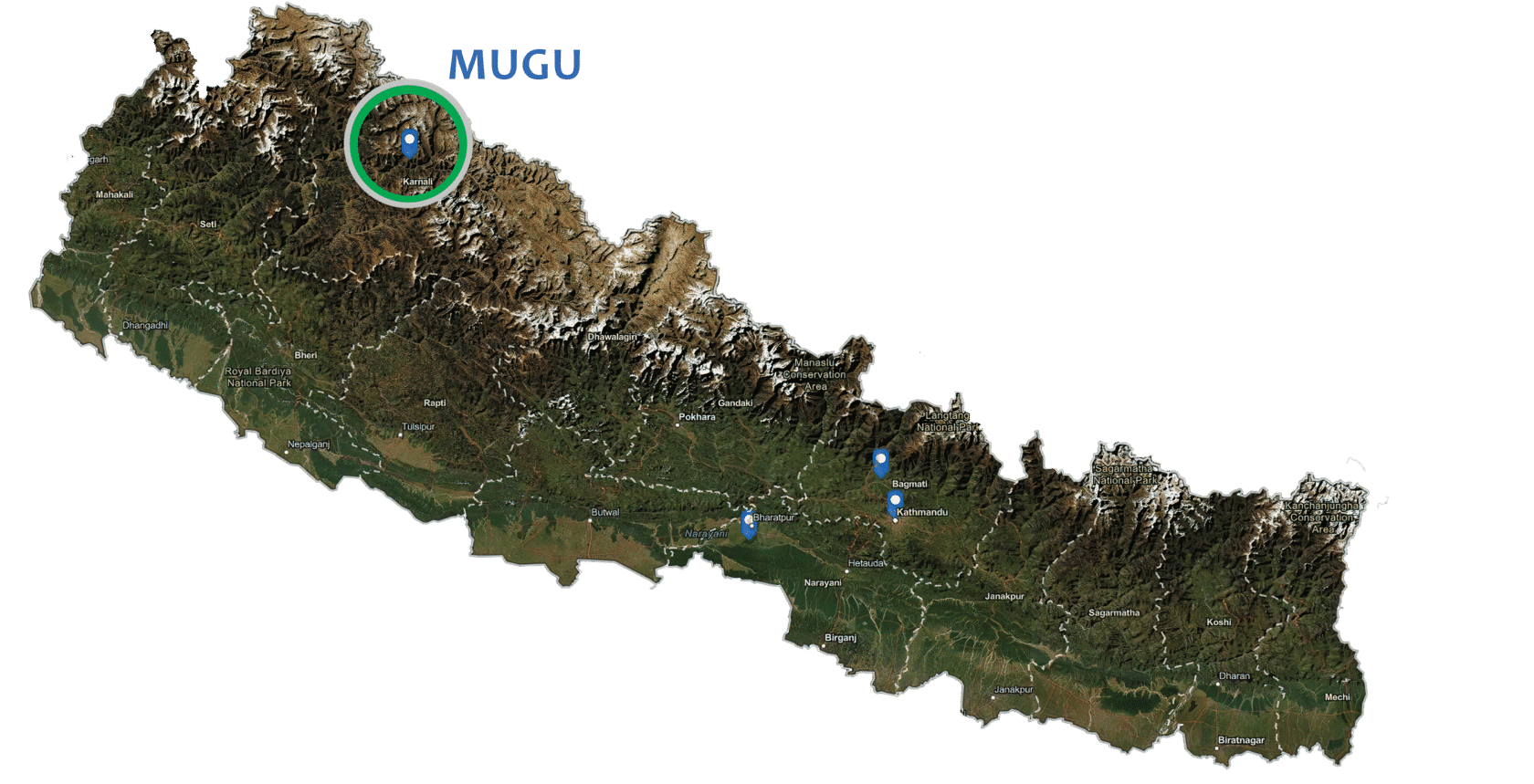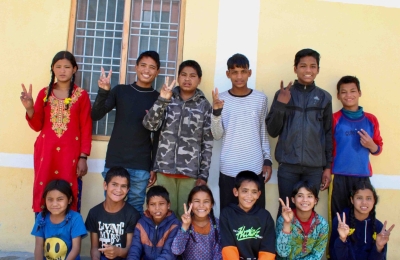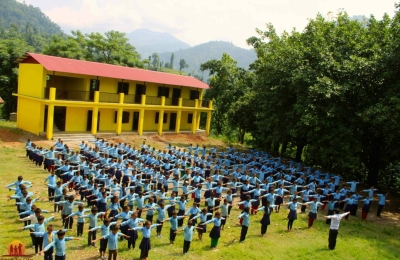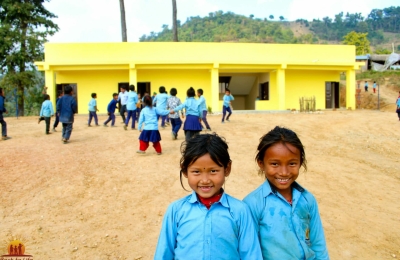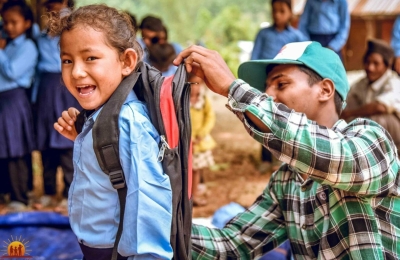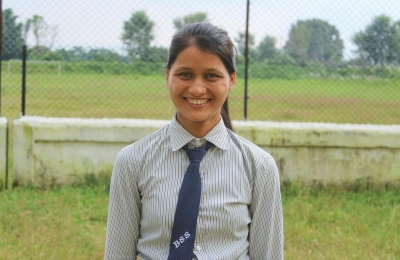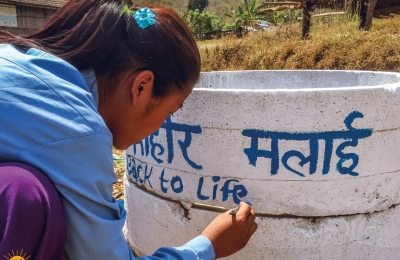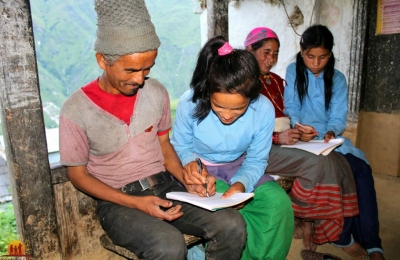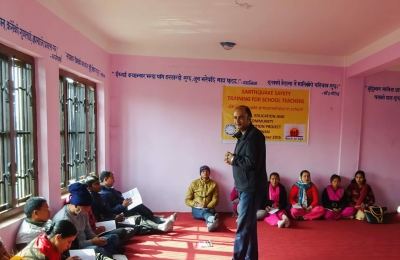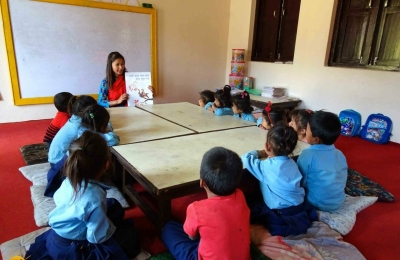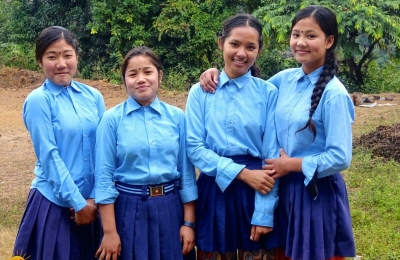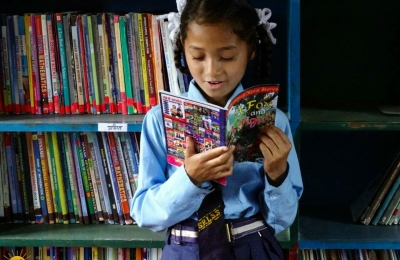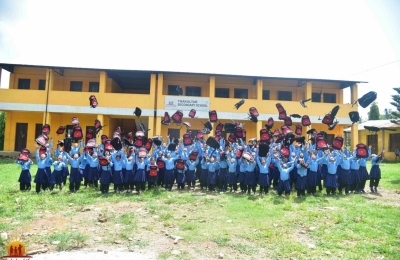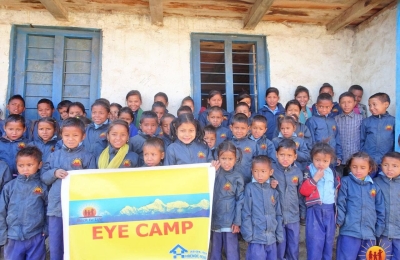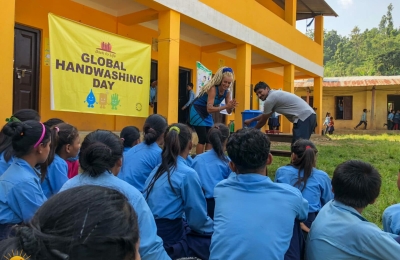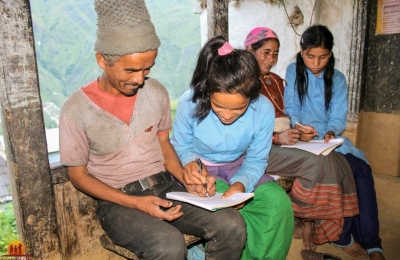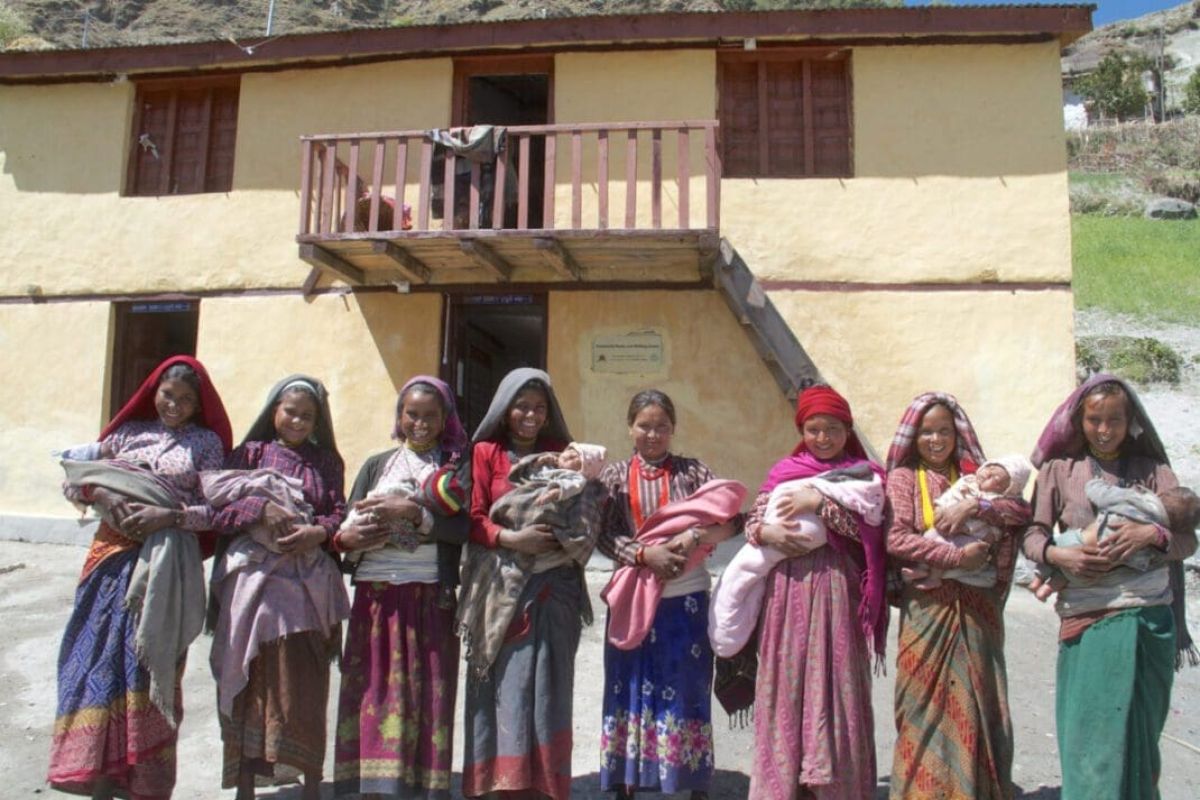
Stella Deetjen tells the story of Sushila, who made building birth centres Back to Life’s core mission. Without this encounter we would probably not have built our 15 birth centres.

When I first came to Loharbada village in 2009, I wanted to learn as much as I could about the daily lives of the women. It was the beginning of our projects in Mugu. Sushila immediately besieged me and never stopped talking. We found out that we are almost the same age, both are mothers and she let me share her hard everyday life. From fetching water, the hard work in the fields, her meagre home without any possessions except the most important necessities, she willingly showed me everything.
Sushila immediately impressed me deep in my heart with her strength, self-confidence and great sense of humour.
Needless to say, I immediately got to know her husband, Jor Singh Nepali, who was just as charismatic as she was. They were a great match and I enjoyed the time we spent together. Jor was a shaman and wore a wild, knee-length head of hair, which he tamed under a turban. He had mischief in his eyes, together we laughed about so many things. They invited me back to their little house again and again, where we cooked together over an open fire, even though they barely had enough to eat themselves. I could not have got to know the real living conditions better.
Wonderful moments shared
They told me how they had met, their marriage was a rather untypical love match for the culture, you could tell. “When I fell in love with Jor because he was so smart and humorous, we weren’t sure if our parents would give their blessing for a marriage. But I knew that I wanted only him as my husband. So we ran away together and only returned to the village a few months later. Finally, we were officially allowed to become husband and wife.
“We were poor and there were hardly any earning opportunities in Mugu. So Jor decided to go to India to earn enough money to buy a small house. I couldn’t imagine staying behind alone, I was only 19 years old and I knew I would miss him too much. So I persuaded him to take me with him on this journey into the unknown. All in all, we stayed in the Chamoli district in Uttarakhand in India for 9 years and worked hard as day labourers, so-called “coolies”, in road construction and on building sites. We managed to save the money we earned, although in between I gave birth to two children who made us a family.When we went back to Mugu, we were able to build a small house. Jor, as a Dalit shaman, did not earn enough and worked as a craftsman and mason, he had learnt these skills in India. I, on the other hand, carried the loads and goods that the small planes brought to the mountains to Gamgadhi and the surrounding villages and so we could at least survive. Our marriage was happy and we had two more children.”
I was touched by how open they were towards me. Jor also patiently answered my questions about shamanism in Mugu and often brought out the big drum in the evening, playing it as if in a trance. I will never forget these beautiful moments.
Birth in the cowshed

Then came the crucial conversation that was to change all our lives and also opened a new chapter in Back to Life. When I asked where the fourth child was, Sushila answered as a matter of course: “It died when I gave birth to it in the forest. Like so many other children in Mugu.” I learnt that due to a fear of spirits, women were not allowed to give birth in the house and therefore had to resort to the forest or the cow shed. I could hardly believe it when Sushila had already grabbed me by the hand and pulled me into one of those cramped, dark and crowded cowsheds where women actually have to disappear for 20 days and give birth to their child alone and unprotected under the worst conditions without any further help. I was stunned. No one in the village had spoken about this before. Sushila took me to a pregnant woman who was about to give birth and I saw the great fear and terror of childbirth in her eyes. It must not be that mothers here have to go through animal-like births, I wanted to change that. Every family was affected, some lost their mothers, others their newborns because of it. But at the same time I was aware that as an outsider I could not shake old traditions or demand to break with them.
Would you like to continue the success story of the birth centres with us? Become a part of it and take over a birth centre sponsorship so that births in cowsheds in Nepal will soon be a thing of the past.
Birth Centers are the solution
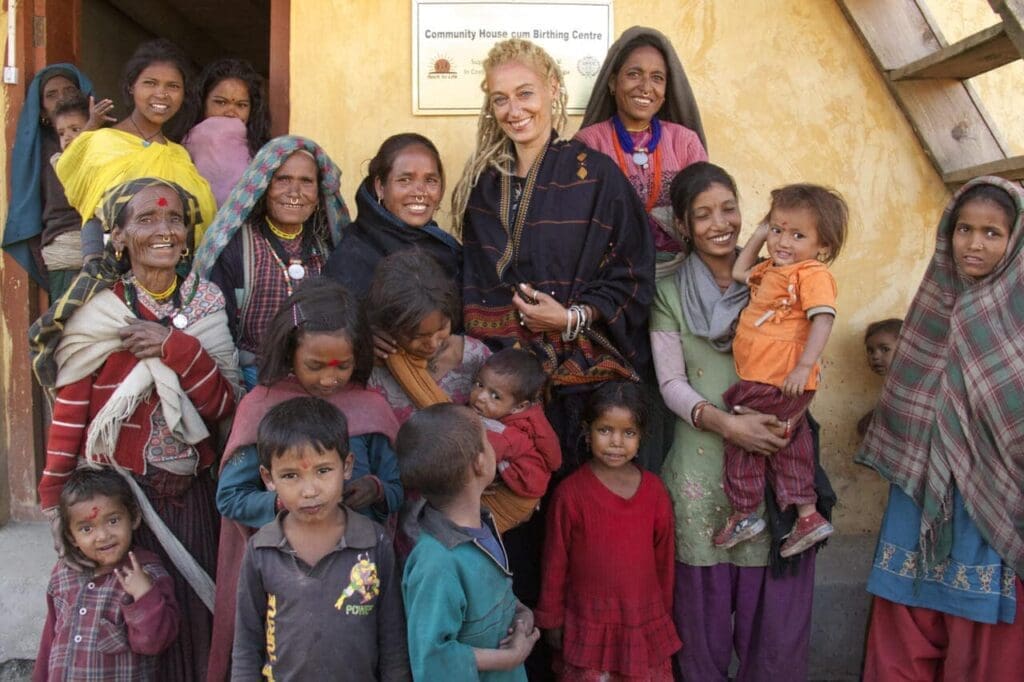
I consulted extensively with Dikendra, Programme Director, and Achyut, Finance Director at Back to Life Nepal, to find a viable solution. After long discussions with Sushila, Jor and other villagers, an idea formed in my mind. “How about we build a birthing house?”, I asked them. “Would you allow the women to use it? After all, they wouldn’t bleed at home and thus anger any spirits.” Immediately we set off to see the old shaman who, after much deliberation, finally gave his consent, as long as we did not put a figure of the gods in the birthplace. “We don’t intend to do that anyway, as Back to Life’s work is neither religious or missionary nor politically motivated. We just want to help people get out of hardship and poverty through our programmes,” I replied.
The rest of the story, dear donors and friends, you have been able to follow for yourselves over the past 13 years and many of you have shared. Over 2,500 children have been born in our 15 birth centres across Mugu.
And what happened to Sushila?
Sushila became the chairperson of the birth centre committee in Loharbada and worked with our team for several years as a motivator, i.e. she went out to the surrounding villages to spread the word about the birth centres. That is no longer necessary today.

Every time I came to Mugu, I looked forward to visiting Sushila and Jor. In 2018, Sushila unfortunately had to cope with a heavy blow. Her beloved husband Jor passed away suddenly, having complained of frequent lung pain. For several months, Sushila was hardly responsive, the loss was engraved on her face and seemed to break the strong and once fun-loving woman. One of her sons finally took her in and bit by bit she got better. Her two grandchildren, with whom she now lives, gave her back the courage to face life. Sushila is already a grandmother of a total of five grandchildren, which clearly puts her ahead of me.
Sushila got the ball rolling and together we started a revolution for so many women of Mugu. Two-thirds of women in this remote mountainous region now have access to safe childbirth thanks to birthing centres.
To enable Sushila to stand on her own two feet again, she received income support from Back to Life. She runs a small haberdashery shop in her village, which we set up for her. She will always feel the grief for her husband, but she is back on her feet.

